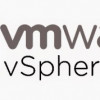[ Terminal ]
[ Users management ]
Check user list
Linux# cat /etc/passwd
adduser JohnG
passwd JohnG
or
useradd [option] JohnG
-d : to assign homedirectory
-u : to assign UID
-s : to set shell
-g : to assign group ID
ex)
Linux# useradd JohnG -d /home/user/JohnG
Linux# useradd JohnG -u 1000
Linux# useradd JohnG -s /bin/tcsh
Linux# useradd JohnG -g user (groups)
Verifying
Linux# useradd -D ; to show default value
WTServer3:~/Desktop # useradd -D
GROUP=100
HOME=/home
INACTIVE=-1
EXPIRE=
SHELL=/bin/bash
SKEL=/etc/skel
GROUPS=video,dialout
CREATE_MAIL_SPOOL=no
To default value change
Linux# useradd -D -g user200 ; to change group ID 200
Linux# useradd -D -d /home/user2 ; to change home directory as /home/user2
Linux# useradd -D -f 0 ; to set active status, if set 0, no more active after expired
Linux# useradd -D -e 2009/12/20 ; to set experation day
Linux# useradd -D -s /bin/tcsh ; to set shell for user.
userdel [option] JohnG
Linux# userdel -r JohnG; -r will allow delete home directory
Passwd
Linux# passwd JohnG ; when change pwd as well.
Verifying
Linux# cat /etc/passwd
man:x:13:62:Manual pages viewer:/var/cache/man:/bin/bash
news:x:9:13:News system:/etc/news:/bin/bash
uucp:x:10:14:Unix-to-Unix CoPy system:/etc/uucp:/bin/bash
JohnG:x:101:101:users:/home/user2:/bin/bash
** If you want to inactive user, put " * " in front of user name
*JohnG:x:101:101:users:/home/user2:/bin/bash
Identify
Linux# whoami
root
Linux# who am i
root pts Nov 20 15:54 (:1011.0)
(192.168.1.5)
Linux# id
uid=101(users) gid=101(users) groups=101(users)
SU
Linux# su JohnG ; Changes user account to JohnG
Linux# su ; Changes to root in current directory
Linux# su – ; Changes to root and moves to root directory.
[ Group management ]
groupadd user100
Linux# groupadd -g 100 user100
Verifying
Check /etc/group
Chris@Linux# groups
root users bin sys www dialout public video
groupdel user100
Groups
Chris@Linux# groups
root users bin sys www dialout public video
newgrp
Chris@Linux# newgrp Hello
Chris@Linux# groups
Hello root users bin sys www dialout public video
[ Directory ]
pwd
Chris@Linux# pwd ; to see current directory, PWD stands for Present Working Directory)
Chris@Linux# cd ; Change directory
ex)
Chris@Linux# cd /etc/httpd/ ; absolute path
Chris@Linux# cd ../../etc/httpd ; path from my directory
Chris@Linux# cd or # cd ~ ; home directory
Chris@Linux# cd .. ; To move one step up directory
Chris@Linux# cd / ; To move top directory
Chris@Linux# cd /user/chris ; To move Chris’s home directory
Chris@Linux# cd &HOME ; To move Chris’s home directory
Chris@Linux# cd ~ ; To move Chris’s home directory
ls
man ls ; to see details
ex)
Chris@Linux# ls -l ; long(details) information
Chris@Linux# ls -a ; to show filename started with " . ", such as hidden file
Chris@Linux# ls -F ; to show characteristic of files
Chris@Linux# ls -t ; to sort for latest updated files
Chris@Linux# ls -al
Chris@Linux# ls /bin ; to show file name only under directory /bin
Chris@Linux# lshw -short ; to show all the devices
cat
Chris@Linux# cat > test ; create a new file as ‘test’, Ctl+D to exit
Chris@Linux# cat file1 file2 file3 > file4 ; Combining file1, file2 and file3 to make file4
Chris@Linux# cat file1 >> file2 ; To attach file1 to file2
cp
Chris@Linux# cp -i ; To confirm overwriting target file if file is exist on destination spot
Chris@Linux# cp -f ; Force to overwrite
Chris@Linux# cp -r ; To copy directory
ex)
Chris@Linux# cp .bashrc .bashrc.bak
Chris@Linux# cp -f .bash . bashrc.bak ; Force to overwrite
Chris@Linux# cp -r Hello/ Hello_Backup
Chris@Linux# cp file_1 file_2 file_3 ./test
find
Chris@Linux# find / -name hello
grep
Chris@Linux# grep HELLO *.doc ; To show all the line with HELLO string on files that has extension with doc.
rm
Chris@Linux# rm -i ; To confirm each file to delete, this option is default
Chris@Linux# rm -f ; To delete without confirmation
Chris@Linux# rm ./Hello/* ; To delete multiple files
Chris@Linux# rm -r ./Hello ; To delete directory(test)
Chris@Linux# rm -rf ./Hello ; To delete directory without confirmation
mv ; (rename function included)
Chris@Linux# mv file /tmp
Chris@Linux# mv file_1 file_2
Chris@Linux# mv ./test_1 ./test_2
mkdir
Chris@Linux# mkdir ./test
Chris@Linux# mkdir -p ./test_1/group1/users
more / head / tail / less
Chris@Linux# more filename
Chris@Linux# head filename ; To show front 10 line of the file
Chris@Linux# tail filename ; To show tail 10 line of the file
Chris@Linux# head – 100 filename ; To show front 100 lines of the file
Chris@Linux# tail -100 filename ; To show tail 100 lines of the file
Chris@Linux# less filename ; To scroll up and down
rmdir
Chris@Linux# rmdir ./test
Chris@Linux# rmdir -r /test
Chris@Linux# rmdir -rf /test ; To delete directory without confirmation
alias
Chris@Linux# alias dir=’ls -al’
du
Chris@Linux# du ./chris ; To show number of files under /chris directory
df
Chris@Linux# df ; To show disk usage by mount drive
Watch
Chris@Linux# watch -n 5 free -m ; to see a status of memory in free
[ System ]
shutdown
CentOS5@Linux# shutdown -r 17:00 ; shut down now and reboot at 17:00.
CentOS5@Linux# shutdown -h now ; halt system and shutdown right now.
System Reboot
CentOS7@Linux# systemctl reboot –force
mount
CentOS5@Linux# mount -t iso9660 /dev/cdrom -o ro /cdrom
[ Network ]
Network service status
CentOS7@Linux# systemctl status network
Network service restart
CentOS7@Linux# systemctl restart network
or
CentOS7@Linux# systemctl restart network.service
Network service stop
CentOS7@Linux# systemctl stop network
[ Version ]
Redhat_Linux# uname -a ; To see version of Kernal
Redhat_Linux# pppd -h ; To see version of PPP
Redhat_Linux# ls -l/lib/libc.so.5 ; To see version of libc
Redhat_Linux# ls -l /usr/lib/libg++.so ; To see version of libc++
Redhat_Linux# ld -v ; To see version of binutils
Redhat_Linux# ldd -v and ldd -V ; To see version of ldd
Redhat_Linux# ls -l /lib/libtermcap.so.* ; To see version of termcap
Redhat_Linux# insmod -V ; To see version of modules
Redhat_Linux# ps –version ; To see version of procps
[ Service ]
To start / stop / restart service
CentOS_Linux$ cd /sbin
CentOS_Linux$ ./service https start / stop / restart
To check all services
CentOS_Linux$ cd /sbin
CentOS_Linux$ ./service –status-all
CentOS_Linux$ ./service –status-all | grep httpd
CentOS_Linux$ ./service –status-all | less
CentOS_Linux$ ./service httpd status
To list of service and open port
CentOS_Linux$ cd /sbin
CentOS_Linux$ netstat -tulpn
[ PHP ]
To check current / running verison
CentOS_Linux$ php -v
[ Yum ]
To check what package installed on the server.
CentOS_Linux$ yum list | grep php ; in this example to see php related packages.



 The www.ipBalance.com runs by a volunteer group with IT professionals and experts at least over 25 years of experience developing and troubleshooting IT in general. ipBalance.com is a free online resource that offers IT tutorials, tools, product reviews, and other resources to help you and your need.
The www.ipBalance.com runs by a volunteer group with IT professionals and experts at least over 25 years of experience developing and troubleshooting IT in general. ipBalance.com is a free online resource that offers IT tutorials, tools, product reviews, and other resources to help you and your need.

![[Splunk] – Basic search fields and commands logo_splunk.png](https://ipbalance.com/wp-content/uploads/2009/06/logo_splunk-100x80.png)

